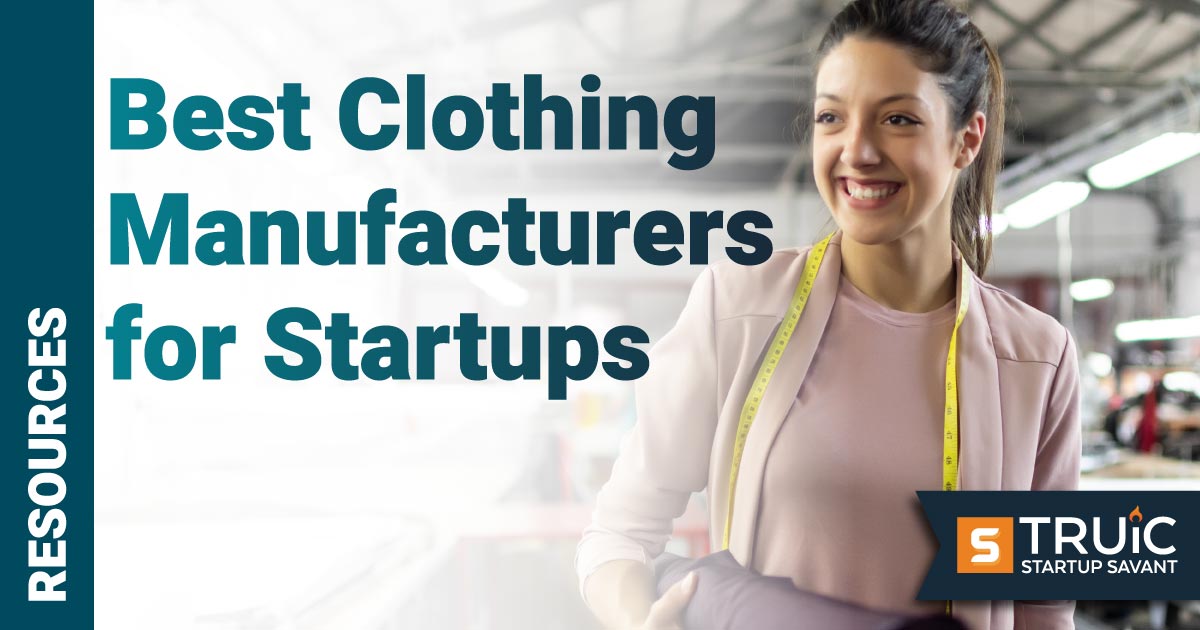10 Startups Tackling Fast Fashion

Last Updated: By TRUiC Team
No longer confined to the change of seasons, the fashion cycle moves at a lightning pace these days. In fact, trends can come and go in as little as a week.
All the activity may be thrilling for a fashionista who never wants to wear the same thing twice, but that urge comes at a high price. Mass production, cheap materials, and throwaway culture are detrimental to our environment. Even worse, it encourages the exploitation of workers to keep prices so low. Luckily, there are companies out there doing their part to reverse the effects.
Recommended: Learn how to launch your own company by reading our comprehensive guide, How to Start a Startup.
Companies Battling Fast Fashion
Companies that are battling fast fashion have their work cut out for them, particularly as breakout stars like Shein are pushed into the $100 billion valuation range. We look at startups that are starting to gain traction and why they’re so vital to buyers and the industry at large.
Disclaimer: With so many exciting startups launching and growing worldwide, we aren’t able to cover them all. Furthermore, the startups that are listed below are not officially ranked and are listed in no particular order.
1. Poshmark
Location: Menlo, California
Funding: Series Unknown, $153 Million
Quality clothes are meant to be worn again and again. Unfortunately, that’s not always the case. Poshmark is battling clothing boredom and disuse by encouraging people to sell their used items on a specialized platform. This second life discourages shoppers from buying brand-new items and keeps clothes out of the landfill at the same time.
2. Cuyana
Location: San Francisco, California
Funding: Series C, $31.7 Million
Fewer and better: these are the two words that Cuyana uses to describe itself. The company encourages people to buy with purpose and to favor quality over quantity. The items for sale are made from materials that are meant to go the distance, but the emphasis is on ensuring that people will wear what they buy so they don’t feel the need to revamp their wardrobe every other month.
3. State of Fashion
Location: Arnhem, Netherlands
Funding: Unknown
There is no such thing as a strict definition for sustainability in fashion, so this company is attempting to put some parameters on the matter while creating a new system at the same time. State of Fashion allows people to rank a brand based on its practices and works with designers to implement more sustainable practices in an industry that desperately needs them. The founders firmly believe that fashion can be a part of the solution.
4. Dropel
Location: New York, New York
Funding: Unknown
The goal of Dropel is to make clothes last longer by using natural technology to improve quality. Fabrics like cotton are popular because they’re comfortable, but they can also break down over time in the endless laundry cycle. Dropel makes clothes that are life-proof, meaning they resist everything from wear-and-tear to spills and stains.
Feeling inspired? Learn how to launch your company with our guide on How to Start a Startup.
5. Vividye
Location: Gothenburg, Sweden
Funding: Seed, $440,000
Keeping clothes for longer is an admirable mission, but it does somewhat ignore the urge people feel to switch things up. Vividye is a company that allows people to alter their clothes, whether in color or design. With reversible dying technology, people can give their old clothes new life, rather than replacing them entirely.
6. Good on You
Location: Sydney, Australia
Funding: Seed, Funding Unknown
The internet has made it possible for sellers and buyers to connect from every corner of the globe. However, it’s also been a breeding ground for anonymity. How can buyers really know what a company is up to in the shadows? Good on You is a company that only features clothing brands taking great pains to do the right thing. It can be an immense comfort for anyone who doesn’t want to support exploitation.
7. Genostyle
Location: New York, New York
Funding: Unknown
Genostyle applies machine learning to the buying process. Its purpose is to help shoppers identify their style so they’ll purchase clothes that they can’t stop wearing. The company also provides insight into everything from brands to trends, which can help people optimize the time they spend browsing and the overall likelihood of using what they buy.
8. Reflaunt
Location: London, United Kingdom
Funding: Series A, $12 Million
With so many new brands on the market, the old brands are still important to fashionistas everywhere. Reflaunt is a startup for established companies to resell or recycle their items, which can both reinvigorate the brand with more sustainable qualities and help them reclaim ownership of the secondary market. It’s a win-win on every side of the aisle, and may even encourage fast fashion brands to change their ways.
9. Hack Your Closet
Location: Stockholm, Sweden
Funding: Pre-Seed, $2.5 Million
Hack Your Closet takes the used clothing market one step further by offering a hybrid experience of personal shoppers and rental experiences. Buyers sign up to receive used items in excellent condition, curated specifically for them. Once they’re finished with the items, the clothes are thoroughly cleaned and stored by the company until their next outing. It’s a great way to come across unique pieces without harming the environment.
10. Renoon
Location: Amsterdam, Netherlands
Funding: Pre-Seed, $610,800
When trying to find an outfit for a party, the founder of Renoon was disappointed in the lack of information about the brands she would potentially be buying. This woman-owned business has managed to curate a list of a million items on offer, and the platform allows you to filter based on a number of categories (e.g., pre-owned, carbon-neutral, vegan, etc.). It’s a great way for shoppers to hone in on what they want without having to endlessly search for it.
Recommended: Check out our full list of the top startups to watch!


